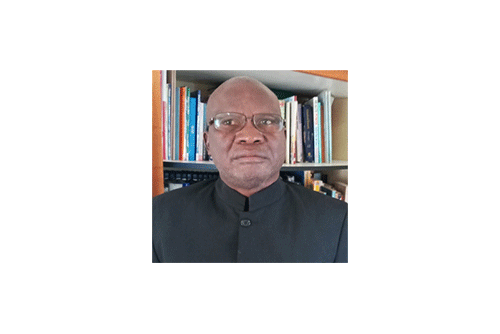For many years, debates and renunciations persisted among Western and African philosophers about the absence of an African philosophy. In his work How Natives Think, Bruhl (1910) posited two basic mindsets of mankind, “primitive” and “Western”, of which the latter does not differentiate the supernatural from reality, but rather uses “mystical participation” to manipulate the world while the Western mind, by contrast, uses speculation and logic.
Levy-Bruhl believed that Africans were not capable of learning, let alone being critical in their education. Nevertheless, African sage philosophers like Oruka (1997) have proved Levy-Bruhl otherwise with philosophic sagacity, which refers to individual thinkers. It is an individualist version of ethnophilosophy, in which one records the beliefs of certain special members of the community. The premise is that some members of a community reach a high level of knowledge and understanding of their cultures’ worldview and become sages.
Oruka further affirms that every culture has ideas and beliefs which underlie and justify it, and can be referred to as the mythos of a culture. The mythos forms a system which can be referred to as the people’s philosophy. Sages and every reasonable man or woman in society are supposed to be conversant with the philosophy of their culture with its mythos. However, African philosophers should not make hasty comparisons when treating traditional thought, as they should approach their material critically. This is important as all people who have gone and made any breakthrough in the quest for modernisation have done so by going beyond folk thinking.
African sages
These are people who are wise because they keep on searching for wisdom, in trying to come to terms with life. This is in line with what Alagoa (2005) refers to, when he says, ‘more days, more wisdom,’ and ‘what an old man sees seated, a youth sees it standing.’ The African sages may not have written books, but they searched, hoping to arrive at tentative answers. The sages have been using a simple method of disseminating information and expertise to their young ones through oral tradition from time immemorial to date. This method has proved to be a powerful tool in traditional education as most of their wise sayings are still used in educative discourses, like the Sifwe idiomatic expression, “munwe wonke kautolyi ngina” meaning one finger alone cannot pick a louse, which implies that a person cannot do everything by himself but needs the help of others. In traditional African society, the profound sayings of the elders are words that are witty and pregnant with meanings. Such words of elders are words of wisdom and find expression in proverbs, idiomatic expressions, riddles, incantations or in oracular and witty sayings.
Western educational perspective
There are four important attributes of a philosophy of education, of which the first characteristic is that it should have a theoretical framework. . It should indicate to the nation where education should lead its citizenry. This implies that education should spell out the benefits an education system should provide to its people like utility, values and the importance of knowledge. The second attribute of the system is that it should have general educational goals to address problems in a context of national educational goals. Thirdly, a philosophy of education should see to it that the identified goals should be tied to broader national goals of the country. The national goals should be enshrined in the constitution. The last characteristic of education is that the philosophy must articulate how the goals are going to be achieved through a school curriculum.
The argument by the Western philosophers
In an indigenous philosophy of education, the four characteristics are not functional because they are not documented, and at the same time are not national in character like the Western ones. However, Cooper (1996) and Solomon (1981) reject the idea of the documentation of philosophies as a condition for them to be recognised, because Socrates and Buddha did not document their philosophies, yet they are regarded as ideal philosophers today. Although indigenous philosophy may not have a theoretical framework and identified goals tied to broader national goals, it can still achieve and serve some purposes in the community by instilling a sense of honesty among the young people, and educate them to lead morally acceptable lives.
Inclusion of age philosophy in the modern school curriculum
Ishengoma (2005) supports the inclusion of African oral traditions and other elements of traditional learning into the modern school curriculum, which will increase the relevance of education to local communities. This challenges the views of those social and cultural anthropologists who hold that African riddles have no substantially meaningful educational value. However, riddles make an important contribution to the children’s full participation in the social, cultural, political and economic life of the African communities, especially by fostering critical thinking and transmitting indigenous knowledge.
It is important for policymakers to consider consulting indigenous communities in any plans to make the national curriculum culturally sensitive and indigenous knowledge-based. In addition, the use of traditional languages should be encouraged throughout the education system, and schools, teachers and textbook writers should be encouraged to use traditional pedagogies and languages. Measures should be taken to indigenise formal education by concretising the process of preserving sage philosophy, folklores through songs, books and through campaigns for ‘aunthenticity’ like the abandoning of meaningless European names in favour of meaningful African names.


